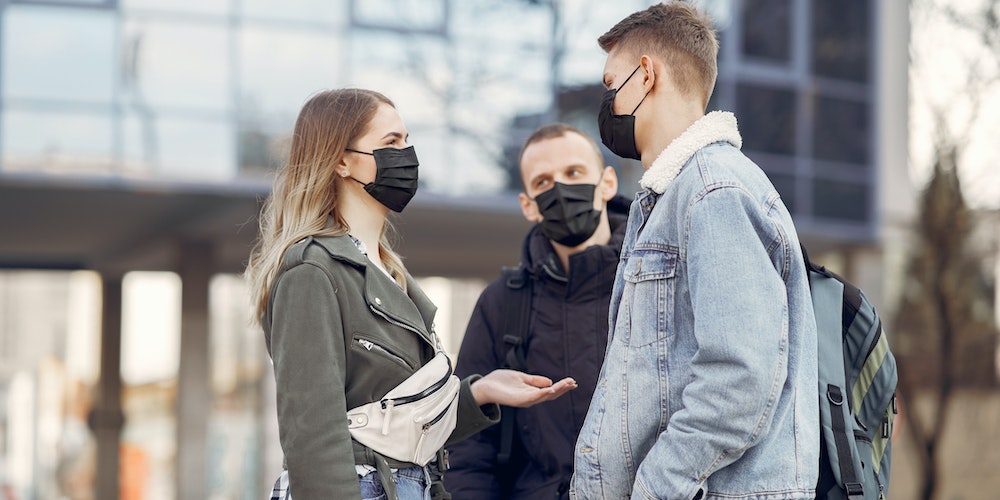3 Ways to Handle Differing Views on COVID-19 Pandemic

Whereas several months ago we were all learning to adapt to the challenges of staying home, soon we will be learning to adapt again as we begin to re-enter society. Protecting as many people as possible includes both minimizing the spread of disease and protecting the economy, and these efforts are at odds with each other since reopening the economy inevitably means bringing people together again. Adjusting to this phase of the pandemic will thus include not only establishing this balance, it will also likely come with interpersonal conflict about how to best go about it.
You may have noticed that ideas about how we should respond to the COVID-19 pandemic have proven to be quite polarizing. This outcome is nothing new; in response to any dilemma, it is predictable that there will be overall disagreement about the “best” way to deal with it. We tend to glare across the rift between us wondering how the “other side” could be so misguided. In the throes of debates, accusations are thrown from one side to the other about being uneducated, brainwashed, and immoral.
How can two people with opposing viewpoints both be so sure they are right? We can learn a lot from psychology about what’s really going on here. For one, differences in personality likely contribute to the divisiveness of some topics. For example, individual differences in Loss Aversion (the preference for avoidance of loss over potential for gain) versus Risk Tolerance (the preference for optimization of reward or gain despite potential risks) may account for why some people tend to be focused on reducing the spread of disease whereas others are more focused on reclaiming a sense of normalcy. Research shows the tendency for Loss Aversion versus Risk Tolerance is independent of level of education or intelligence, and both tendencies certainly have their own benefits and drawbacks in terms of outcomes.
3 ways to handle differing views on COVID-19 pandemic
1. Listen to understand
Remember that just as you are likely firmly rooted in your beliefs, likely too is the person across from you. As much as you may believe this person just needs the right information or understanding to change their mind, the reasons behind their attitude are likely much more complicated than that. So instead of having the goal of persuading them, see what happens when your goal shifts to better understanding them. This doesn’t mean ultimately agreeing with them – it simply means listening. We often encounter people with opposing viewpoints at work and in our families and social circles. Learning to listen with curiosity instead of judgment is an important skill that helps us to cultivate deeper relationships.
2. Speak for yourself
That said, you are free to explain where you are coming from just as the other person is. Just remember that others are more likely to hear your point if they are not feeling criticized. Explain your point of view without shaming the other person. Each person’s situation is different, and speaking from your unique experience helps others to understand how you arrived where you are now.
3. Find common ground
Naturally, we are not always going to see eye-to-eye with everyone. However, if we remain curious and open, we can likely find some common ground with just about anyone. We have all simultaneously experienced a major shift in our lives because of a global pandemic – something no one living today has experienced before. Focusing on our shared experiences promotes a sense of connectedness and fosters empathy.
If you are looking for additional support, choose from a large network of therapists who work in person and online to find the right one for you.
Ready to prioritize your mental health?
Great Lakes Psychology Group is here to help. With an extensive network of caring therapists available to meet online or in-person, we make it easy to find the right fit for your unique needs.



